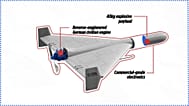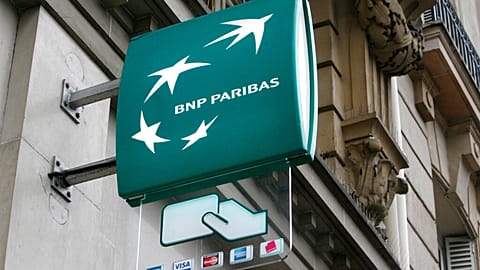Nine candidates from Madrid to Riga will present their case at a grueling 12-hour hearing next week.
There are nine candidates to host the EU’s new anti-money laundering agency, AMLA – each set to face cross-examination at a grueling set of hearings next week.
 ADVERTISEMENT
ADVERTISEMENT
 ADVERTISEMENT
ADVERTISEMENT
The 12-hour session could see lawmakers and governments argue over rent prices, school quality and transport connections in cities large and small, from Paris to Vilnius.
A recent significant overhaul of EU anti-money laundering rules has already seen politicians agree to ban large cash transactions and apply dirty-money checks to the world of football.
Now they just need to find a home for AMLA, whose 400 staff will directly supervise dirty money controls at 40 major financial banks. It won’t be easy to pick from a slate comprising Paris, Frankfurt, Rome, Madrid, Vilnius, Vienna, Brussels, Riga and Dublin.
At a mammoth hearing in Brussels on Tuesday (30 January), each city will for one hour present its candidacy, before being grilled by lawmakers and representatives of the EU’s council, which groups member states.
The meeting will feature some big political guns.
France is due to send its finance minister Bruno Le Maire to argue the case for Paris, while his German counterpart Christian Lindner will be flanked by politicians from Frankfurt and the Hesse region.
Decision-makers want to ensure that, wherever the new agency is, it’s effective and attractive.
MEPs may well probe each country’s performance on anti-money laundering – as putting AMLA in a crime hotspot would look pretty bad.
That spells good news for France and Lithuania, which both appear in the top 20 international anti-money laundering jurisdictions complied by the Basel Institute on Governance – but worse for Belgium, Italy and Germany, all deemed higher risk.
EU member states, meanwhile, tend to strive for “geographical balance" in an attempt to spread such agencies equitably across the bloc.
While putting AMLA in Brussels would give its officials easier access to the European Parliament and Commission, others argue largesse should be distributed further afield.
Madrid and Rome host no EU agencies, while Dublin, Riga and Vilnius boast only minor regulators concerned with labour markets, telecoms regulation and gender equality.
Frankfurt and Paris may try and turn that argument on its head, and argue that putting AMLA in the existing homes of the European Central Bank or EU Banking Authority respectively would make life easier for regulated financial institutions.
They may also note they have the busiest airports in Europe, making them easy to get to in ways the likes of Vilnius and Riga can't match.
Not all of the candidates are equally ready, and buildings in Vienna and Rome won’t be ready until 2026. But MEPs will need to consider the price tag, too.
Unsurprisingly given their extravagant housing markets, Paris, Rome and Dublin would be pricier options, with rent around €500,000 a month.
But the costs won’t always fall in the same way – Brussels and Vienna have agreed to foot the bill indefinitely should they win, rather than letting the agency itself pay.
Decisions, decisions
Previously, it was the EU Council, representing member states, that got the sole right to decide where to put agencies – but the EU’s top court recently demanded MEPs be given an equal say.
Each member state will get one vote, while lawmakers will divide up their collective 27 votes in proportion to political party size.
In principle, decision-makers have set out painstaking criteria the candidates must meet, from the size of meeting rooms to the availability of international schools.
In practice, those technical criteria may cede to politics: the usual horse-trading and backroom dealmaking that sees EU decisions cross the finish line.
A vote is likely some time in mid-February – and history suggests it could be both tense and messy. A recent decision over where to move the EU’s Medicines Agency post-Brexit had to be decided by drawing lots.

















